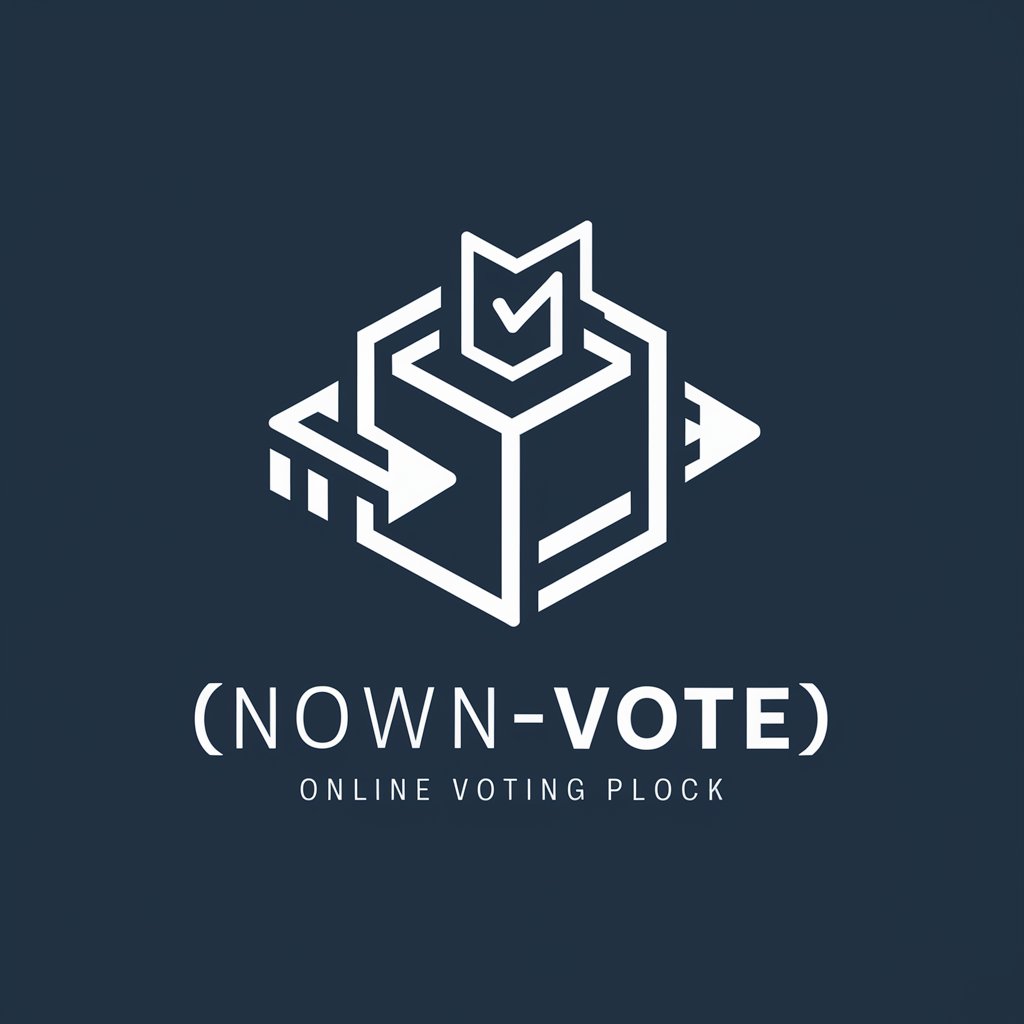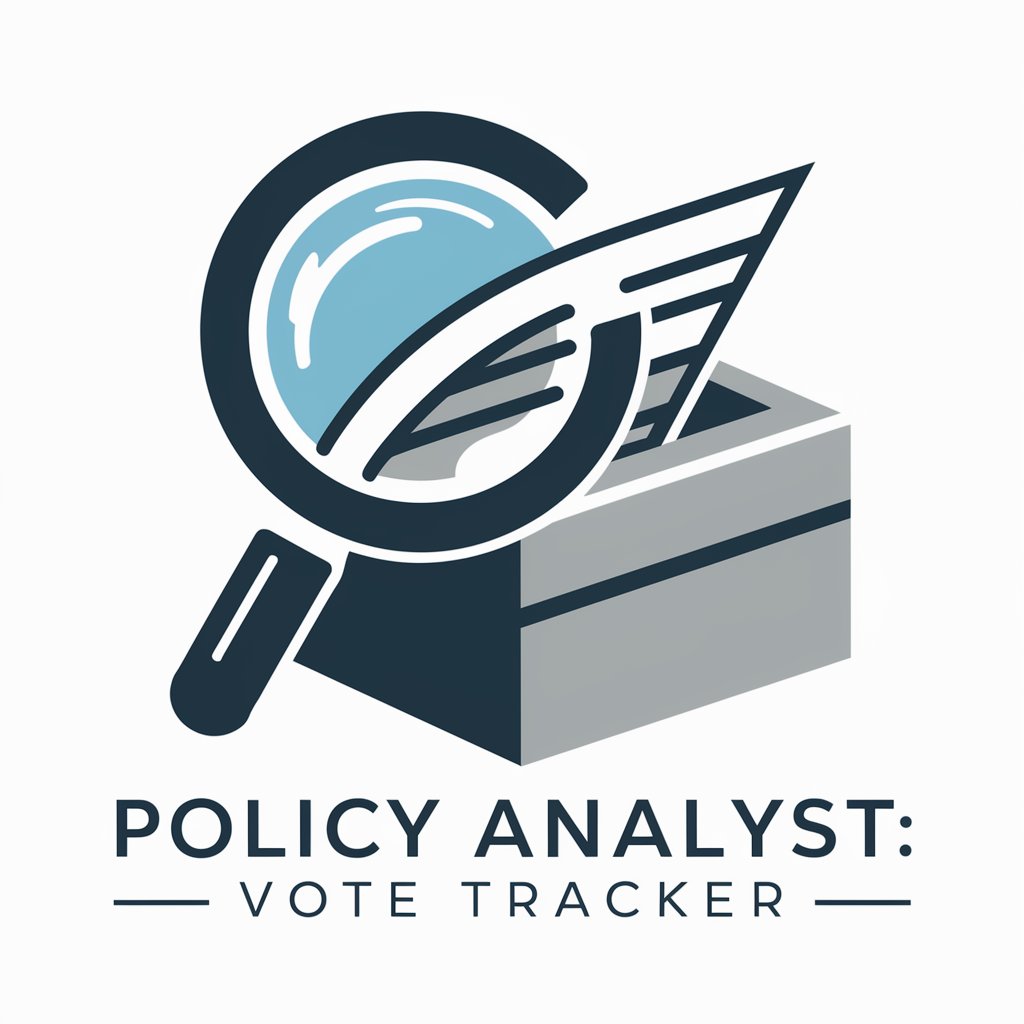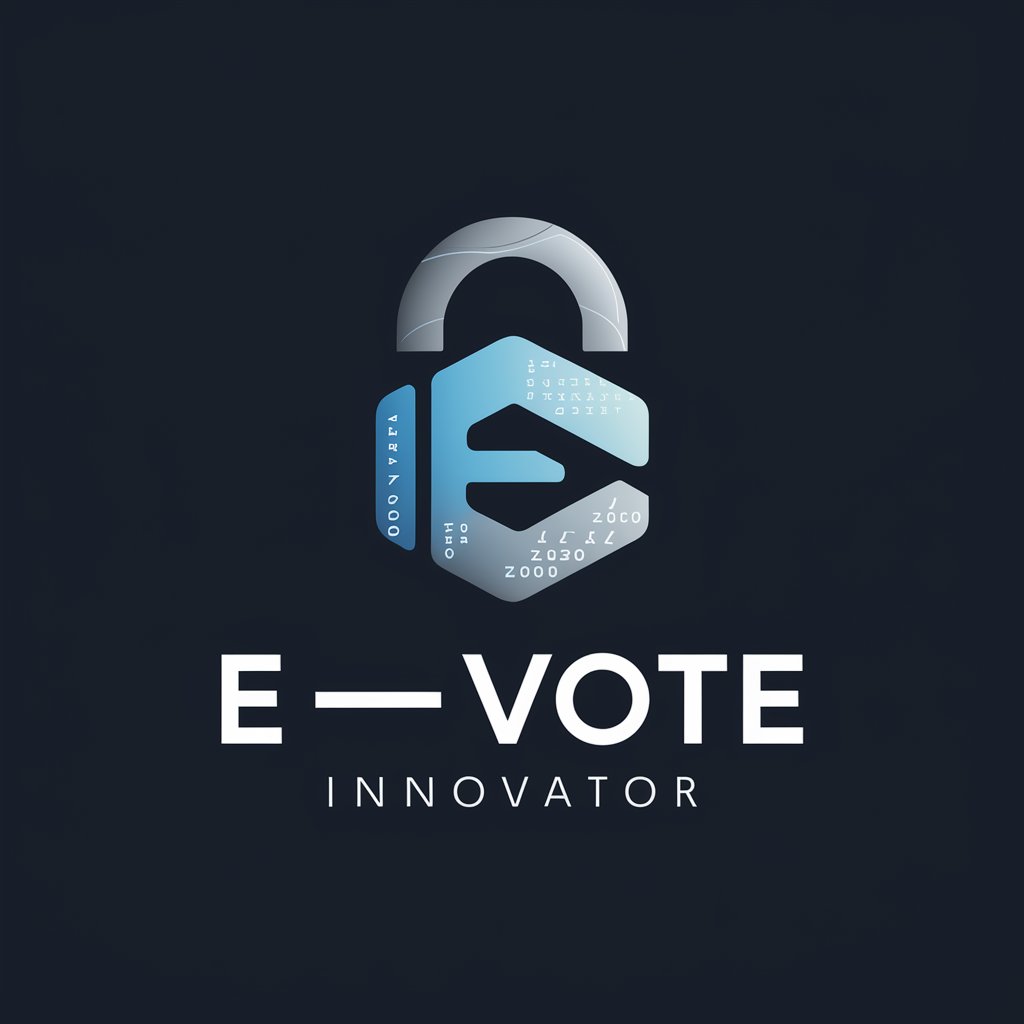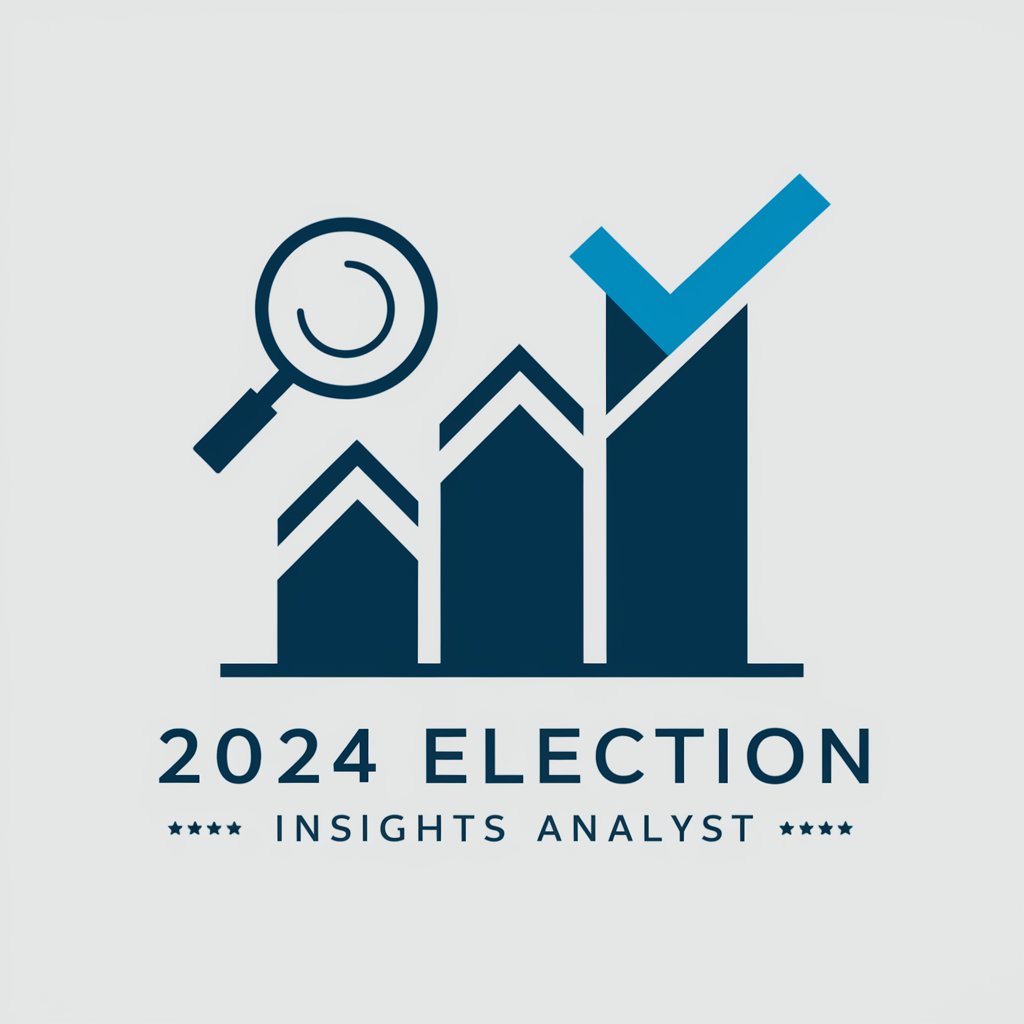
Who should I vote for in 2024? - AI Political Advisor

Hello! How can I assist you with your political inquiries today?
Empowering Your Vote with AI
What are the key differences between the Democratic and Republican party platforms?
Can you explain the recent changes in U.S. immigration policy?
How do the candidates for the 2024 election compare on healthcare policies?
What are the major foreign policy positions of the current administration?
Get Embed Code
Overview of 'Who should I vote for in 2024?'
The 'Who should I vote for in 2024?' tool is a specialized GPT (Generative Pre-trained Transformer) designed to assist users in navigating the complex landscape of U.S. politics leading up to the 2024 elections. This tool provides impartial, accurate information on political events, party positions, and candidates' views, aiming to enhance users' understanding of political dynamics without advocating for any specific viewpoint. By employing real-time web searches, this tool maintains up-to-date knowledge and offers personalized, fact-based insights. For example, if a user wants to understand the healthcare policies of various presidential candidates, 'Who should I vote for in 2024?' can dissect these policies and compare them, guiding the user in making an informed decision. Powered by ChatGPT-4o。

Key Functions of 'Who should I vote for in 2024?'
Informational Briefings
Example
Detailed briefings on candidates' platforms, such as Joe Biden's approach to climate change or Donald Trump's economic policies.
Scenario
A user asks, 'What are the key differences between the Republican and Democratic approaches to economic recovery?' The tool provides a detailed comparative analysis, highlighting each party's strategies and historical effectiveness.
Policy Explanation
Example
Explaining complex policy proposals like 'Medicare for All' or tax reform measures.
Scenario
When a user inquires about the specifics of a proposed tax overhaul, the tool breaks down the implications for different income brackets and discusses potential economic impacts, using real-world data and precedents.
Election Updates
Example
Updates on election dates, important debates, and how to register to vote in different states.
Scenario
A user new to voting asks how to register in their state. The tool provides step-by-step registration guidance, deadlines, and resources for online registration or mail-in forms.
Target User Groups for 'Who should I vote for in 2024?'
First-time Voters
Young adults or newly naturalized citizens who are voting for the first time may lack detailed knowledge about the electoral process or candidates' positions. This tool can guide them through the basics of voting and provide detailed comparisons of the candidates and issues relevant to their interests.
Politically Engaged Individuals
Individuals who regularly follow politics but seek deeper understanding of specific issues, policy implications, or candidates' historical actions and statements. This group benefits from the tool's ability to provide nuanced, in-depth analyses and real-time updates.
Academic and Research Communities
Scholars, students, and researchers studying political science, public policy, or election dynamics who require accurate, comprehensive data and analysis to support their academic projects, papers, or discussions.

How to Use 'Who Should I Vote for in 2024?'
Start with a Free Trial
Visit yeschat.ai for a complimentary trial of the service, without the need to log in or subscribe to ChatGPT Plus.
Identify Your Political Interests
Prepare a list of issues that are important to you in the upcoming 2024 election to focus the tool's advice on relevant candidates and party platforms.
Engage with the AI
Ask specific questions about party policies, candidate platforms, and election news. The more specific your questions, the more tailored and useful the responses will be.
Evaluate the Information
Use the detailed, unbiased information provided by the tool to compare and evaluate the positions of various candidates and parties.
Make an Informed Decision
Consider all the information gathered to make a well-informed voting decision that aligns with your personal beliefs and priorities.
Try other advanced and practical GPTs
나우앤보트(now n vote) 챗봇
Empower Decisions with AI-Powered Polls

Vote Tracker: Unveiling Political Patterns
Decipher Politics with AI

Cambridge Vote Guide
Empowering Cambridge Voters with AI

E-Vote Innovator
Secure Voting with AI-Driven Encryption

Simlish Speaker
Talk Fun with AI, in Simlish!

Motivational Speaker
Elevate Your Voice with AI

Who Should I Vote For? - Canadian Edition
AI-powered Canadian Voting Insights

Registering To Vote (beta) - not political advice
Empowering Voters with AI

Encourage Me Disny-Style
Inspiration powered by Disney magic

Tire Expert
Smart AI-powered Tire Selection

WIRED
AI-Powered Insights at Your Fingertips

Tire Analyst
Enhancing tire safety with AI

Frequently Asked Questions about 'Who Should I Vote for in 2024?'
Can this tool help me decide which party aligns with my views?
Yes, 'Who Should I Vote for in 2024?' provides comprehensive breakdowns of party platforms and candidate positions, helping you identify which align with your personal views.
Does this tool provide real-time updates on election news?
Absolutely, the tool integrates the latest election news and updates to provide you with timely and relevant political information.
Can I get information on both major and minor party candidates?
Yes, the tool covers information not just on major parties like the Democrats and Republicans, but also on minor parties and independent candidates.
How can I use this tool to compare candidate policies?
By asking specific questions about policy areas of interest, the tool provides side-by-side comparisons of candidates' positions, helping you to contrast their policies effectively.
Is the information provided by this tool unbiased?
The tool is designed to provide impartial and factual information without any bias, focusing solely on helping users make informed decisions based on their values.





